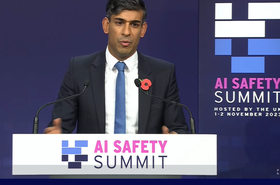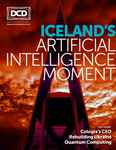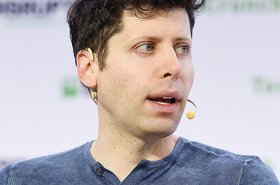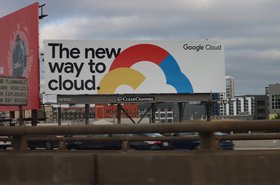Last night, when Elon Musk told UK Prime Minister Rishi Sunak that AI will do away with the need for work, it might have been a relief. Sometime next year, Sunak and his government will face an election they are generally expected to lose.
The exchange, part of a recorded interview between the two, had some odd moments, and formed a strange postcript to the AI Safety Summit which thus far had taken a serious, if somewhat unfocused, approach to the risks of AI.
Chat-show
Star-struck Sunak gushed and giggled, trying to keep up with Musk’s nerdier musings, told Musk he was “such a brilliant innovator and technologist,” and never missed a chance to say how “excited” he was to be acting as Musk’s personal chat-show host, starting and ending the meeting saying how “privileged” we all were to hear from him.
For his part, Musk reiterated some of the warnings he’s been issuing about the dangers of strong AI for some time. But he stopped short of predicting the destruction of civilization, which he did back in April.
This time round, Musk went tech-utopian, and painted AI as a genie that could give infinite wishes. If we get those wishes wrong, he warned, we might end up being chased up a tree by a Terminator-style humanoid robot.
Sunak laughed along as Musk dismissed that as a James Cameron-style movie plot, simply fixed by a “hardwired local cutoff that you can’t update from the Internet.”
Musk seemed much more inclined to expect better things, going as far as to suggest that Sunak’s AI Safety Summit, by bringing together an impressive group of world leaders, would “go down in history as being very important,” allowing AI to usher in a “future of abundance,” rather than dystopian doom.
“There will come a point where no job is needed,” Musk said. “You can have a job if you want to have a job, for personal satisfaction, but the AI will be able to do everything.”
In this world, everyone would have what they wanted: “Not a universal basic income, we'll have universal high income.”
Musk didn’t give any ideas on how that world will appear, either because he didn’t think he had to, or he didn’t want to face up to the idea that billionaires might have to learn to share.
Instead, he cited the Civilisation science fiction novels of Iain Banks, which really just do the same thing better, placing people in a future quasi-Utopia, without giving any suggestion how society transferred from capitalism to a world of freely available high-tech.
The real frustration of the AI Safety Summit, on display in the Musk-Sunak show, is that knowledge is power. Musk and the tech billionaires have both, while our elected representatives have neither [even if Sunak and his wife are personally close to billionaire status themselves].
It is possible that our elected representatives may one day understand science. But anyone who has followed the terrible revelations about the wilful illiteracy of Sunak’s predecessor-but-one Boris Johnson during the Covid-19 pandemic can’t be too hopeful.
Sunak may well be our geekiest senior politician ever - but he was still reduced to a cheerleader as Musk breezily explained things.
Musk said open algorithms or “open source AI," will always be a year behind closed algorithms (and that means they will be five times worse). He described large language models as “gigantic files of inscrutable numbers,” saying “It's like our digital God is a CSV file. Really?”
Facing the public
Like Musk, Sunak has wealth and a penchant for private jets, but at least Sunak must occasionally face the public, some of whom have asked him, reasonably enough, what will happen when AI takes their jobs.
Sunak’s response is always that AI is a “copilot," a sanitized way of saying AI can do most of your job for you: “There's still human agency, but it's helping you do your job better now, which is a good thing.”
Earlier that day, he’d said AI could enable a Department of Work and Pensions (DWP) caseworker to do “a week’s work in an hour,” without answering the question of why, if this fantasy were true, the DWP would not seize the opportunity to downsize its staff by a factor of thirty?
Sunak said he believes that “work gives you meaning,” and praised his new buddy’s “drive” and “motivation.”
He asked Musk why he works such long hours if AI could do the job. “Let’s tell them to hurry up,” Sunak joked, ”so you can have a holiday!”
Sunak, as we said at the start, may well be starting a long holiday sometime after next year. And many people have suggested his next move could be to Silicon Valley.
Others have observed that the politicians at events like this look increasingly like flunkies to the real power brokers. One such flunky present at the Summit was Sir Nick Clegg, Deputy Prime Minister from 2010 to 2015, and since 2018 a senior PR for Facebook, now Meta.
It’s Clegg’s job to smile and say everything is fine, no matter the consequences of Meta’s failures to police its platforms, and the obvious systemic nature of those failings. Sunak just did his first interview for a similar role.
No danger, then, of AI putting him out of work.








